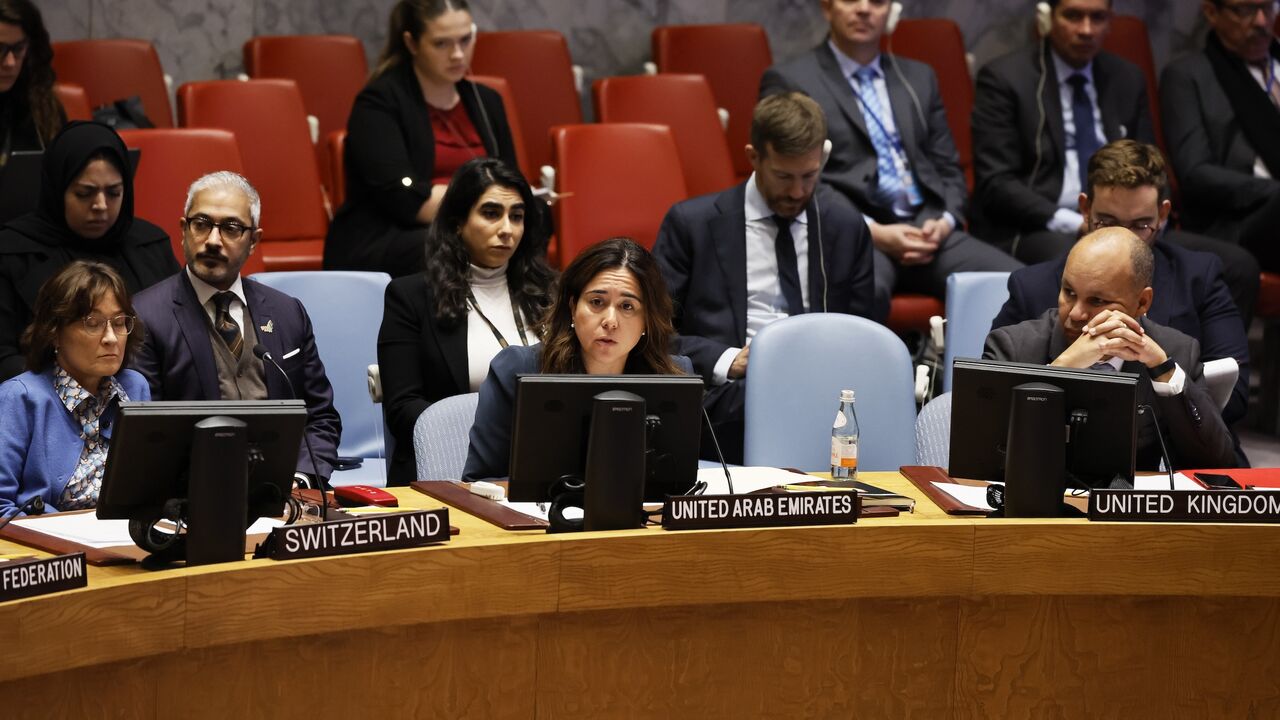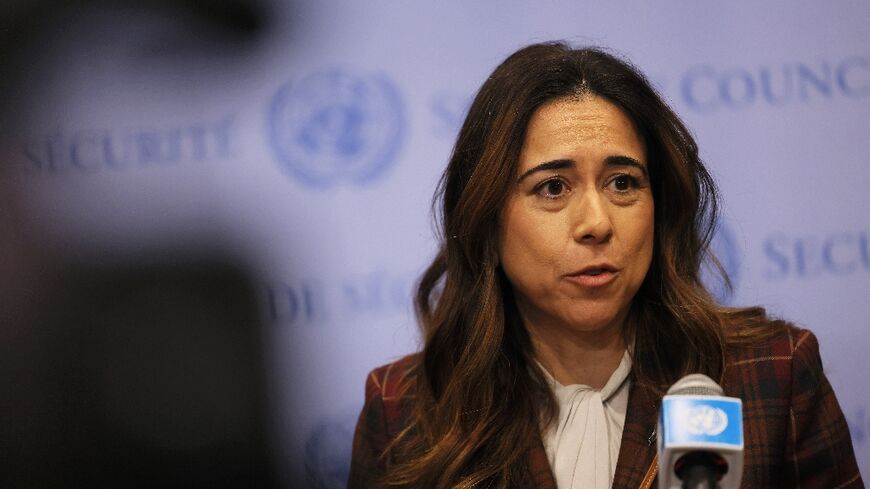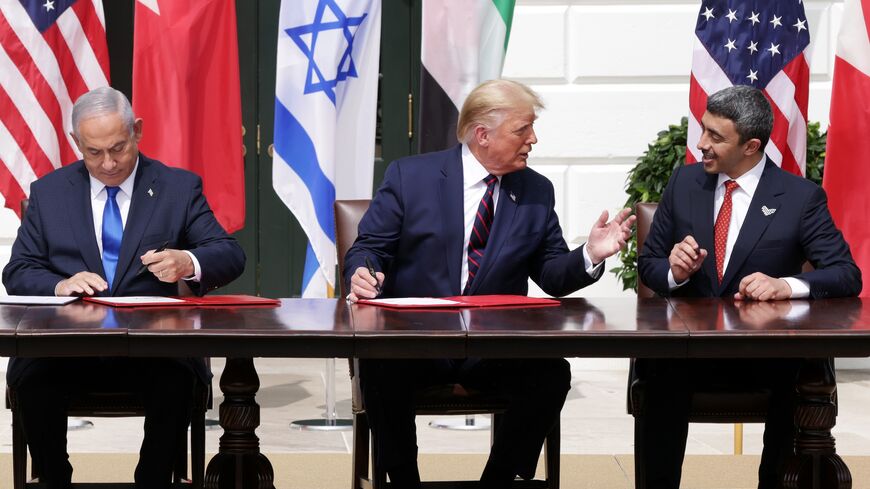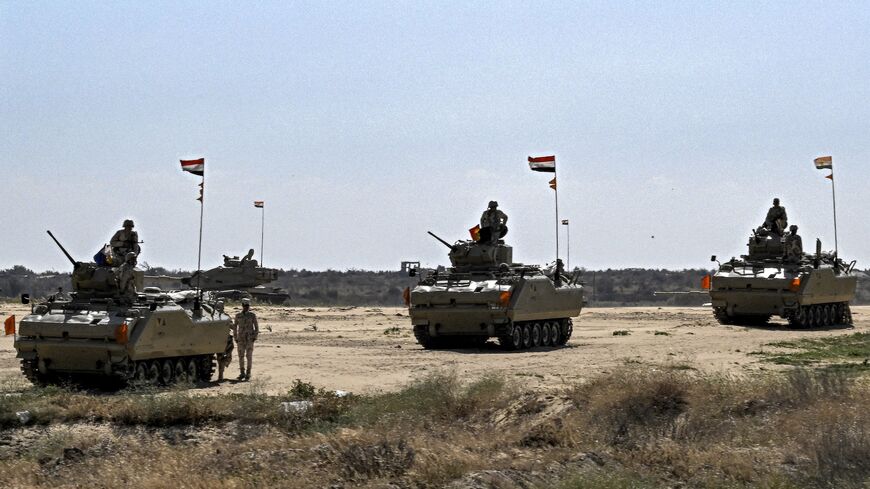International law 'cannot be a la carte': UAE, Saudi and Egypt scold Israel at ICJ
The presentations at The Hague could further the rift between Israel and the Arab world amid the Gaza war and efforts to expand normalization, though countries in the region are still interested in maintaining relations with Tel Aviv.

Egypt and the United Arab Emirates harshly criticized Israel at The Hague on Wednesday, underscoring the rising tension between Israel and Arab states as the Gaza war rages on.
The International Court of Justice (ICJ), the United Nations’ top court, began hearing arguments on Tuesday in a case on the Israeli occupation of the West Bank and Gaza. The Palestinian Authority asked the court on Monday to declare the occupation illegal. A total of 52 states will present arguments through Feb. 26.
Several Arab states are among those going before the court. On Wednesday, the United Arab Emirates' ambassador to the UN, Lana Nusseibeh, argued that international law must apply to Israel and the Palestinian territories and that an ICJ opinion in the case would be appropriate.
“International law cannot be an a la carte menu. It must apply equally to all,” said Nusseibeh before the court.
UAE Ambassador to the UN Lana Nusseibeh says that international law cannot be an "a la carte menu" and must "apply equally to all." pic.twitter.com/lz1agiLO5k
— AL-Monitor (@AlMonitor) February 21, 2024
Nusseibeh lamented the “horrors” of the conflict in the speech and reiterated the UAE’s support for a two-state solution.
“The horrors that have unfolded over the last few months — the seventh of October attack on Israel, the destruction of the Gaza Strip, the oppression in the West Bank — underscore the desperate need for realizing a two-state solution,” she said.
The ambassador used especially harsh language toward Israel, saying, “We convene today while Israel’s grave violations toward Palestinians persist with impunity,” in reference to both the war in Gaza and the West Bank occupation.
Yasmine Moussa, an advisor to Egyptian Foreign Minister Sameh Shoukry, spoke for Egypt at the court.
“Israel’s prolonged occupation is illegal, and as an ongoing international wrongful act, it must be immediately brought to an end,” she said.
Moussa specifically criticized Israeli settlements in the West Bank, saying they are eroding the possibility of a two-state solution. On Gaza, she accused Israel of “continuing its policy of mass forcible expulsion of Palestinian civilians” due to the massive displacement in the territory.
Saudi Arabia went before the court on Tuesday. Ziad Al-Atiyah, the kingdom’s ambassador to the Netherlands, called Israel’s actions in the Palestinian territories “legally indefensible” in his speech.
Israel occupied the West Bank and Gaza in 1967 and has blockaded Gaza — a territory that's been controlled by Hamas since 2007 — since 2005.
Israel will not testify at the ICJ in the case but sent a written response saying an advisory opinion on the matter would harm attempts to resolve the conflict, according to Reuters.
Why it matters: The Hague case comes at a time of persistent criticism from Arab states toward Israel’s war in Gaza, including from those that have relations with Israel: Egypt, the UAE and Jordan. The death toll in Gaza has surpassed 29,300, local authorities said on Wednesday. Around 1,200 people were killed and another approximately 230 taken hostage during Hamas' Oct. 7 attack on Israel.
Prior to the war, Saudi Arabia was reportedly considering normalization with Israel, a move encouraged by the United States. The kingdom said earlier this month that there will be no relations until a Palestinian state is established.
Ryan Bohl, a senior Middle East analyst at the US risk intelligence firm RANE, said that Arab states are ramping up their criticism of Israel due to domestic pressure and to push Israel to change its actions.
“They have populations that want to see action against Israel. But the other part is that they are trying to pressure Israel to carry out some policy changes toward the Palestinians to make a Palestinian state more viable,” Bohl told Al-Monitor.
Bohl said that speaking at the ICJ is "probably one of the least risky but most prominent ways” to criticize Israel, given the court’s stature and the fact that its rulings are not necessarily binding.
Despite the rhetoric, Bohl said regional states are still interested in maintaining relations with Israel. The UAE is particularly interested in the security aspect of its ties with Israel, according to him.
"The Emirati state still sees these big defense ties with the Israelis as a very valuable part of this emerging multipolar world order as the US retrenches and becomes less reliable,” he said.
The prospects of Saudi-Israel normalization are not dead either, according to Bohl: “There are big strategic gains that Saudi Arabia can make through that process.”
Saudi Arabia is interested in US security guarantees before any normalization with Israel.
The recent conflict sent Israel-Egypt relations on a spiral. Last week, Shoukry warned that the looming Israel offensive in Rafah in southern Gaza would have "extremely negative repercussions.”
Rafah has Gaza’s sole border crossing with Egypt, and Egyptian officials have repeatedly voiced opposition to Palestinians fleeing Gaza into the Sinai Peninsula — an area that has experienced Islamist insurgency in recent years.
Egypt is preparing for the possibility of an influx of Palestinians in the meantime and is both fortifying its border with Gaza and stepping up efforts to achieve a cease-fire due to the looming Rafah offensive, Mohammed Magdy reported for Al-Monitor from Cairo on Saturday.
There has been speculation in international media that Egypt could suspend its 1979 peace treaty with Israel over the Gaza war. Bohl said that Egypt could stop complying with aspects of the agreement, such as the stipulation against troop deployments in Sinai.
“The Egyptians are basically signaling that if we have a refugee crisis caused by your offensive, we're going to send in as many troops as we need to contain that situation,” he said.
Know more: The court is also considering South Africa’s genocide case against Israel. The court issued a series of orders last month compelling Israel to take more steps to protect Gazan civilians, but refrained from calling for a cease-fire or ordering a stop to the campaign against Hamas.
What’s next: Iran, Iraq, Kuwait and Lebanon will present arguments on the occupation case on Thursday, followed by Qatar on Friday and Turkey on Monday, among other regional states, according to The Hague’s schedule.







